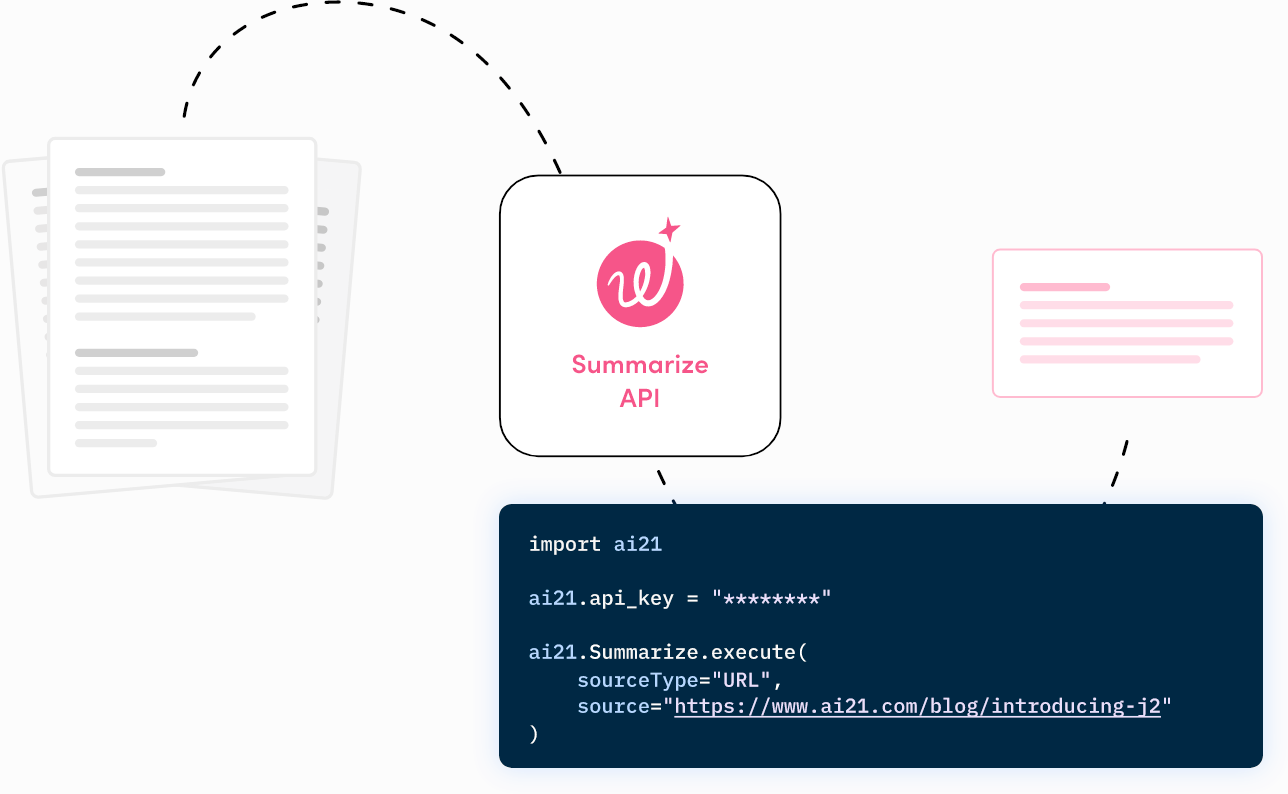OpenAI is on pace to surpass $1 billion in annual revenue already
and China goes public with their AIs
⚡ Today’s Highlights
📰 News: OpenAI is on pace to surpass $1 billion in annual revenue + Baidu will be one of the first firms to win China’s AI approval
💰 Funding: AI21 Labs, QuantHealth, Voxel, Confirm, and Context.ai
🌎 Content: Don’t miss this insightful talk from Dr. Andrew Ng at Stanford University!
📰 Today's Top Stories
OpenAI Passes $1 Billion Revenue Pace as Big Companies Boost AI Spending
(7 min read) (Source: The Information)
TLDR: According to a report by The Information, OpenAI is set to surpass $1 billion in annual revenue, exceeding past projections and earlier revenue of just $28 million last year. This shift occurred after OpenAI started charging for access to its ChatGPT service.
The chatbot amassed 100 million users at an unprecedented rate, outpacing prior internet sensations like Instagram and TikTok.
As we’ve noted throughout the year, OpenAI’s success with ChatGPT has catalyzed increased AI investments from big tech companies. However, the startup's losses have also risen, doubling to around $540 million in 2022 as it ramped up development of the chatbot.
In addition to monetizing ChatGPT, OpenAI generates income through API access to its AI models. However, a deal with Microsoft entitles the tech giant to 75% of OpenAI’s profits until its $13 billion investment is repaid.
To combat these numbers, OpenAI just recently launched an enterprise version of ChatGPT with enhanced security features. Early adopters include prominent companies like Canva, Estée Lauder, and PwC. The service has been adopted in over 80% of Fortune 500 companies according to OpenAI.
The Big Picture: This positive news about OpenAI's growth demonstrates the financial potential and societal impact of AI technologies, reshaping industries and attracting significant capital inflow despite current macroeconomic outlooks and fear of ‘overhype’. Yet, it also raises concerns about the scalability and ethical dimensions of AI, as companies like OpenAI take on colossal development costs and complex revenue-sharing agreements.
Baidu, SenseTime Among First Firms to Win China AI Approval
(5 min read) (Source: Bloomberg)
TLDR: China's Cyberspace Administration is set to authorize the first set of generative AI services for public use. Major tech firms like Baidu are expected to be among the first to receive approval.
Slated to go public as of today, August 31, Baidu's chatbot Ernie Bot is positioned as a rival to OpenAI's ChatGPT. The company also plans to release new applications to allow users to experience generative AI.
The approvals come on the heels of China’s recent comprehensive regulations on AI, implemented to control content while encouraging competition with U.S. companies. As is the norm nowadays, services influencing public opinion are subject to extra security reviews.
Alongside Baidu, Alibaba and Tencent are also developing their own foundational AI models, despite hardware limitations due to U.S. sanctions.
For now, the companies aim to make AI a cornerstone of their cloud-computing platforms, as these enterprise services attract less governmental scrutiny.
The Big Picture: China’s move to approve generative AI services signifies a critical moment in the global AI landscape. It underscores the nation's urgency to be a global leader in transformative technology, signaling its intentions to compete directly with U.S. tech giants.
👀 More Reading:
Can we defend against the online anti-science movement? (Salon.com)
Large language models aren’t people. Let’s stop testing them as if they were. (MIT Technology Review)
Call of Duty will use AI to moderate voice chats (The Verge)
An AI quadcopter has beaten human champions at drone racing (NPR)
Runway CEO: AI could usher in new ‘golden era’ of cinema (Semafor)
💰 Funding Alerts
1. AI21 Labs, a leader in generative AI and Large Language Models offering advanced text-based AI services for enterprises, closed a $155 million Series C funding round at a valuation of $1.4 billion.
AI21 Labs specializes in empowering businesses with LLMs and AI-driven applications, enhancing text generation, refinement, and understanding.
Round included Walden Catalyst, Pitango, SCB10X, b2venture, Samsung Next, Prof. Amnon Shashua, Google, and NVIDIA.
Funding will be used to accelerate the growth of AI21 Labs' text-based generative AI services for enterprises.
2. QuantHealth, an AI-powered clinical trial design startup that offers a simulator to predict patient responses in clinical trials, raised $15 million in Series A funding.
QuantHealth's AI-driven simulator enhances clinical trial planning by predicting patient responses with high accuracy, optimizing trial design for success and providing insights for various medical research questions.
Round led by Bertelsmann Investments (Thorsten Wirkes Senior Vice President) and Pitango HealthTech (Ittai Harel, Managing Partner), with participation from Shoni Top Ventures, Nina Capital, Boston Millennia Partners, Atooro Fund, and Renegade Ventures.
Funding will be used for commercial expansion, product development, and platform expansion beyond clinical trials into new use cases like regulatory support and early R&D.
3. Voxel, a start-up utilizing AI to prevent workplace accidents, raised $12 million in a strategic fundraising round.
Voxel's AI technology analyzes security camera footage to identify hazards, risky behaviors, and operational inefficiencies, significantly reducing workplace accidents and boasting up to an 80% reduction in accident numbers at sites across the US.
Round led by global manufacturing business Rite-Hite, with participation from existing investors Eclipse Ventures, Mtech, and the World Innovation Lab.
Funding will be used to further develop and expand Voxel's technology, aiming for greater commercial impact in new geographies and markets, including industries like ports and airports.
4. Confirm, a platform that uses Organizational Network Analysis (ONA) and generative AI to inject science into performance reviews, raised $6.2 million in Series A funding, totaling $11.4 million.
Confirm's ONA-based platform reduces bias and inefficiencies in performance reviews. It offers insights into high performers and support-needed employees, facilitating promotion, PIP, and retention decisions based on clear data.
Round led by Spero Ventures (Andrew Parker, General Partner), with participation from SHRMLabs, Elefund, Gaingels, Black Angel Group, and existing customers.
Funding will be used for product development, sales, and marketing. The platform will further develop features like auto-drafted employee reviews, auto-generated employee engagement survey insights, and more, all while expanding its adoption in the HR realm.
5. Context.ai, a product analytics platform for LLM-powered applications, raised $3.5 million in funding.
Context.ai's platform helps businesses analyze conversation topics, evaluate product performance, debug conversations, monitor brand risks, track user retention, and measure the impact of new releases.
Round led by Google Ventures and Tomasz Tunguz at Theory Ventures with participation from 20SALES, Harry Stebbings (Founder, 20VC), Guy Podjarny (Founder, Snyk), Victor Riparbelli (Founder, Synthesia), Steffen Tjerrild (Founder, Synthesia), Mehdi Ghissassi (Head of Product, DeepMind), Matt Robinson (Founder, GoCardless & Nested), Milos Rusic (Founder, deepset), Jacob Bank (Founder, Relay), Devvret Rishi (Founder, Predibase), and Sean Mullaney (CTO, Algolia).
Funding will be used to expand operations and business reach, enabling more companies to leverage the power of LLM-driven insights for their AI products.
🌎 Fresh Content
1. In this talk at Stanford University, Dr. Andrew Ng unpacks the incredible opportunities and challenges that AI presents in 2023. Imagine a world where AI is as ubiquitous as electricity, powering everything from online advertising and self-driving cars to optimizing agriculture and even pizza-making! Dr. Ng doesn't just stop at the 'what'—he delves deep into the 'how,' discussing key tools like supervised learning and generative AI.
Dr. Ng also tackles the tough questions: What about the short-term challenges startups may face? How can AI be customized for different industries without breaking the bank? And let's not forget the ethical considerations—how do we ensure AI benefits humanity while addressing issues like bias, fairness, and job disruption?
As AI advances, the likelihood of it becoming a part of the solutions to large-scale problems like climate change increases drastically. If you want to know how it’ll get there and the real-world applications that will advance it to that point, you won’t want to miss this! (YouTube - 37 mins)
2. In this episode of Harvard Business Review’s IdeaCast podcast, Tom Davenport, a professor of management and information technology at Babson College, discusses how new AI tools are helping employees expedite their jobs and opening doors to faster analytics and automation. However, this isn’t without its own unique challenges. He discusses how employees and companies can benefit from this work and practical ways for teams to oversee these efforts. (Spotify - 31 mins)
3. In this video, Dr. Károly Zsolnai-Fehér of Two Minute Papers discusses GigaGANs and how they’re changing the AI image generation game. Generative Adversarial Networks (GANs) are revolutionizing text-to-image models by drastically increasing the speed at which high-quality images can be synthesized, creating several images a second, offering significantly improved artistic controllability.
They can also improve image upscaling by adding up to 1000 times more pixels in new images, dramatically increasing the resolution of images. They can also make changes to a single generated subject, something that image-generating models have struggled with (imagine generating the same teddy bear but made of different materials). The results are truly mind-blowing! (YouTube - 5 mins)




